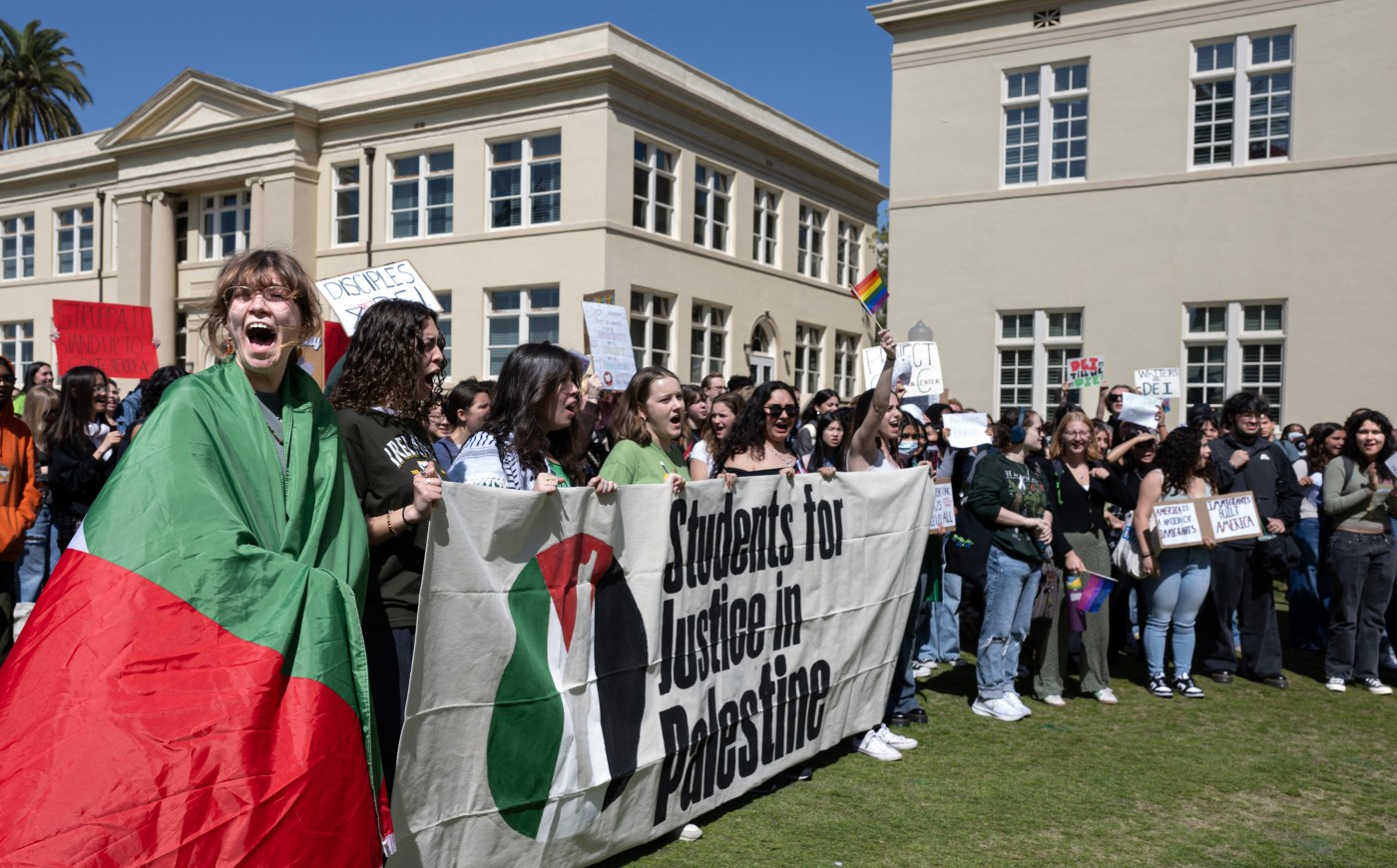At least five of Chapman University students say they are scheduled for administrative hearings for using megaphones at a protest last month calling on university leaders to protect diversity, equity and inclusion programming.
The university’s Provost Norma Bouchard and Vice President of DEI Reg Stewart were placed on leave as of at least March 12 with no explanation to staff or students, prompting the protest. The announcement came days after the Trump administration sent warning letters to dozens of colleges, including Chapman, saying the schools could lose federal funding if the U.S. Department of Education finds they are not protecting Jewish students on their campuses.
Students participated in the March 17 protest to call out the lack of transparency surrounding the sudden placement of the two administrators on leave, as well as to demand that university leaders protect DEI initiatives, commit to preserving Chapman’s cross-cultural center and keep ICE officers off campus.
Myth Moos, a senior at Chapman, is one of five students scheduled for an administrative hearing for alleged campus code of conduct violations.
“It’s disappointing because we want our voices to be heard at our university,” Moos said. “But even pushing for our voices to be heard is met with more silencing. If not with these administrative hearings, with new policies to silence our voices and several activists on campus.”
As a matter of privacy, the university does not provide information about individual students or employees, Carly Murphy, a university spokesperson, said in a statement
“Chapman University welcomes diverse viewpoints,” Murphy said. “Free speech and academic freedom are hallmarks of Chapman University — ideals that we uphold and practice every day in our classrooms, in our halls, in our centers and institutes, and across our campuses.
“In addition to fully supporting free speech, including peaceful protests and demonstrations, we encourage and nurture civil discourse,” she said. “We have an important role to play in this regard, as an educational institution, and our policies aim to provide opportunities for everyone.”
DEI programming allows students to feel protected, supported and heard, Moos said.
“As a Black student on campus, having DEI really supports us and gives me and other Black students a ground to stand on and a supportive community who can help us get our voices heard,” Moos said. “DEI protected this community and protected people’s rights to be proud of their identities. Seeing that be taken away by the Trump administration, from universities, from high schools, from companies, from everywhere where DEI stands and serves people of oppressed communities, is super heartbreaking.”
History has shown, Moos added, that universities have previously pushed back against student activism — take the anti-Vietnam War protests of the 1960s and 1970s — but then later celebrated those movements.
“Then in 10, 15 years, they’re going to talk about how proud they were that this movement happened on their campuses,” Moos said. “Fortunately, a lot of the teachers teaching these kinds of things to the students understand and are our bigger supporters on campus, but the administration still hasn’t taken any lessons from this.”
Moos and one other student also recently went on a hunger strike for 10 days.
“We were desperate for the university to listen to us. There’s only one email from the administration telling students not to do it,” Moos said. “That and these administration hearings come to show that the university and the administration don’t care about their students.”
Moos said the students had heard of at least three international students at Chapman who had their visas revoked over the weekend — there have been reports across the country of the federal government terminating students’ visas. F1 visas allow international students to study and sometimes work in the country, making them vulnerable to deportation.
